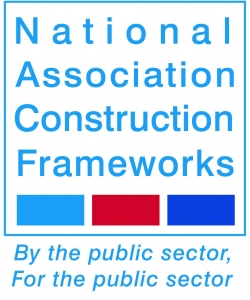
Framework Representative
Adam Sanford
About Southern Construction Framework (SCF)
SCF is all about meaningful partnerships, not just between our suppliers and our clients but also between Hampshire and Devon County Councils. It is often a challenge for public sector organisations to make the bold decisions required to form lasting partnerships, but the SCF partnership has proven to be versatile and resilient, through a time of unprecedented challenges, and is a blueprint for collaborative practices amongst our built environment community.
Together we have delivered over £10billion of public sector works across the region, with strong client satisfaction levels that have comfortably outperformed the market.
What do clients love about SCF?
In line with NACF values, we hold a deep understanding of the challenges and opportunities of project delivery within local government and the wider sector and have developed a unique set of tools and approaches to maximise positive outcomes for every project.
What are SCF’s most innovative public sector build projects and what makes them special?
A high point for us was delivery of a programme of works at Harwell Science and Innovation Campus, which for 75 years has led UK scientific research and development. Successful delivery of the National Satellite Test Facility and the Rosalind Franklin Institute led to further commissions including the Vulcan 20-20 laser facility, used to research astrophysical phenomena, clean energy, plasma physics, and electromagnetic fields.
What makes SCF proud to be a part of the South East & London?
When people think of the South-East, they would be forgiven for thinking of London – but although the UK’s capital city is undoubtedly a major hub for the built environment, it’s the diversity of our region that never fails to impress. At our Headquarters in Winchester, we are a stone’s throw from two national parks, each very different in their landscapes and demographics.
With 300 miles of coastline and a population of nearly 18.5 million, the construction industry faces a significant challenge in providing safe and resilient communities in which people prosper. As a major financial and technological hub, the region is at the forefront of innovation in placemaking and modern methods of construction.
What does SCF do to support your local communities?
SCF was at the forefront of supporting social value and localism and was a founding member of the region’s shared apprenticeship scheme. Many hundreds of apprentices have gains qualifications through SCF’s processes, which have evolved to stay at the forefront of policy and legacy, including the introduction of digital platforms to manage local SME and third sector engagement.
How did SCF first become involved with the NACF?
NACF has been integral to SCF since the inception of both and was a natural progression from the best practice groups before it, sharing fully aligned values with Hampshire County Council’s Property Services department. I was lucky enough to be invited to represent the South-East and London regions when I became a regional lead for SCF.
Why is NACF important in the construction industry?
The NACF is unique as a forum that pools collective knowledge of local government construction delivery together. It also interfaces with central government and the industry, representing the common interests of a diverse sector while promoting public sector values. It also ensures a consistency of approach that allows greater focus on continuous improvement than any individual member could achieve.
What would be the SCF’s best piece of advice for a public sector organisation considering using a framework?
As a public body embarking on a major construction project, use of a framework has become the obvious choice over the risky and expensive process of open market procurement. Less well known however, are the differences in the real cost and services provided between framework offers. It pays to look past the glossy advertising and marketing buzz and understand the values and the motivations behind the procuring body of the framework.
The name of the “contracting authority” may surprise you, and if the link is unclear between the framework operators and the contracting authority, then buyers should seek additional assurance that the framework has been genuinely for the public sector, by the public sector.

